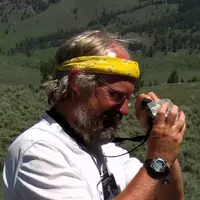Geoscience Education Research: A Brief History, Context and Opportunities
Monday
1:30pm
REC Center Medium Ice Overlook Room
Oral Presentation Part of
Geoscience Education Research I
Authors
 Dave Mogk, Montana State University-Bozeman
Dave Mogk, Montana State University-Bozeman
 Kim Kastens, Lamont-Doherty Earth Observatory
Kim Kastens, Lamont-Doherty Earth Observatory
 Cathy Manduca, Carleton College
Cathy Manduca, Carleton College
DBER combines knowledge of teaching and learning with deep knowledge of discipline-specific science content. It describes the discipline-specific difficulties learners face and the specialized intellectual and instructional resources that can facilitate student understanding (NRC, 2012). In the geosciences, content knowledge derives from all the "spheres" (atmo-, hydro-, bio-, litho-), the complex interactions within the Earth system, first principles from allied sciences, an understanding of "deep time", and approaches that emphasize the interpretive and historical nature of geoscience. These topics can present formidable barriers to learners of all ages. Insights gained from the theory and practice of the cognitive and learning sciences that demonstrate how people learn, as well as research on learning from other STEM disciplines, have helped inform the development of geoscience curricular initiatives. The Earth Science Curriculum Project (1963) was strongly influenced by Piaget and emphasized hands-on, experiential learning. A NSF report (NSF 97-171) recommended "... that GEO and EHR both support research in geoscience education, helping geoscientists to work with colleagues in fields such as educational and cognitive psychology, in order to facilitate development of a new generation of geoscience educators." An NSF sponsored workshop, Bringing Research on Learning to the Geosciences (2002) brought together geoscience educators and cognitive scientists to explore areas of mutual interest, and identified a research agenda that included study of spatial and temporal learning, complex systems, use of visualizations in geoscience learning, characterization of expert learning, and learning environments (field, lab). Subsequent events have focused on building new communities of scholars, such as the On the Cutting Edge faculty professional development workshops. Geoscience education research is a growing and thriving field of scholarship that includes new PhD programs and numerous collaborative research consortia. The results of geoscience education research are presently being incorporated into the geoscience curriculum through teaching activities and textbooks.


